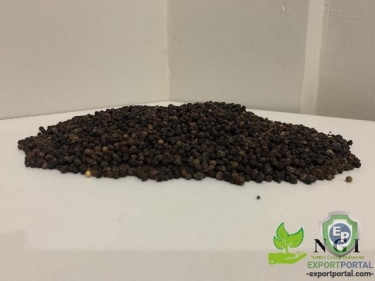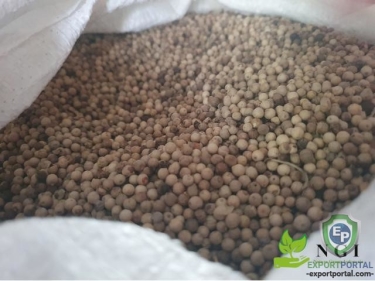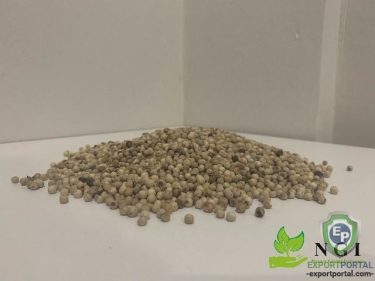Couldn't find the product you want?
Fill out this form to request the product.
Export from Indonesia
Export Portal is a great place to find and connect with Indonesian Exporters, Indonesian Manufacturers, Indonesian Suppliers and Distributors. We have hundreds of Indonesian companies registered on the marketplace covering over 50 categories.
Indonesia is characterized by a growing economy with huge opportunities for exporting and importing. It is a country of big numbers and big opportunities. Huge and sprawling, Indonesia is the world's 16th most prosperous nation, holding huge potential for global companies. With nearly a quarter of a billion people spread across more than 17,500 islands, the Indonesian archipelago has been an important trading hub since at least the 7th century.
And what does Indonesia export? The nation has generous natural resources, including crude oil, natural gas, tin, copper, and gold. Many importers around the world as well as simple buyers are looking for Indonesian Electrical Appliances, Indonesian Plywood, Indonesian Rubber, Indonesian Food Products and Beverages, Indonesian Gemstones & Jewelry and other products made in Indonesia.
Export Portal is a gateway for online trading between Indonesia and other countries of the world.
Import to Indonesia
Export Portal is the leading trading portal which offers global companies to introduce their products to international buyers and allows buyers to search for products as well. It aims to increase foreign trade between Indonesia and all the countries across the globe interested in the trade leads provided. Trade leads can be searched by categories, products, countries or in the search bar at the top of the homepage.
Main imports of Indonesia are oil and gas, nuclear reactions, boilers, mechanical appliances; iron and steel, organic chemical materials and vehicles. Main import partners are China, Japan, Singapore, Thailand and the United States.
If you are looking to import products in Indonesia, browse trade leads by categories and countries. These categories include food products, apparel, footwear, computers, cars, bikes, office products and much more.
Export Portal is your one stop destination for finding and contacting Global Suppliers and Manufacturers to import products easily and safely to Indonesia.
Spices make food taste great, they make its flavor bitter or sweet, spicy or specific and strange. A spice is a seed, fruit, root, bark, berry, bud or vegetable substance primarily used for flavoring, coloring or preserving food. A spice may have other uses, including medicinal, religious ritual, cosmetics or perfume production, or as a vegetable.
Herbs have a variety of uses including culinary, medicinal, and in some cases spiritual usage. General usage of the term "herb" differs between culinary herbs and medicinal herbs. In medicinal or spiritual use any of the parts of the plant might be considered "herbs", including leaves, roots, flowers, seeds, resin, root bark, inner bark (and cambium), berries and sometimes the pericarp or other portions of the plant.
If you are intended to sell spices online, do it on Export Portal! We provide a place for safe trade and finding customers worldwide.
Herbs can be perennials such as thyme or lavender, biennials such as parsley, or annuals like basil. Perennial herbs can be shrubs such as rosemary, Rosmarinus officinalis, or trees such as bay laurel, Laurus nobilis – this contrasts with botanical herbs, which by definition cannot be woody plants. Some plants are used as both herbs and spices, such as dill weed and dill seed or coriander leaves and seeds. Also, there are some herbs such as those in the mint family that are used for both culinary and medicinal purposes.
Some plants contain phytochemicals that have effects on the body. There may be some effects when consumed in the small levels that typify culinary "spicing", and some herbs are toxic in larger quantities. For instance, some types of herbal extract, such as the extract of St. John's-wort or of kava can be used for medical purposes to relieve depression and stress. However, large amounts of these herbs may lead to toxic overload that may involve complications, some of a serious nature, and should be used with caution. Sell herbs online on our site, expand your business overseas!
If you want to buy spices online, you are in the right place. Sellers from all over the world offer a wide range of spices on Export Portal.
- Dried herbs and spices: asafetida, allspice, cardamom, cayenne pepper cinnamon, coriander seed, cumin, fennel seed, garlic powder, ginger, oregano, paprika, rosemary, turmeric, black pepper.
- Fresh herbs: basil, curry leaves, dill, mint, parsley.
- Spice blends, rubs and mixes: baharat, chili powder, chinese five-spice powder, curry powder, herbes de provence.
Shop for food products online on Export Portal, make the best choice! Trade with Export Portal for the best results and increase your profits!
Customs requirements of Indonesia
Indonesia Customs Contacts
Website: http://www.depkeu.go.id/
Email: info@customs.go.id
Address: Jl. Lapangan Banteng Timur No.2-4 Jakarta 10710
Telephone: +62213841067
Indonesia is a country situated in Southeast Asia, between the Indian and Pacific oceans. It is the world's largest island country, with more than 13000 islands. The country has land borders with Papua New Guinea, East Timor and Malaysia. Other neighbouring countries include Singapore, the Philippines, Australia and Palau. Indonesia is a member of ASEAN, G-20, International Chamber of Commerce, World Trade Organization and other international structures. The economy of Indonesia is the 16th largest in the world according to its GDP.
Export Procedures in Indonesia
Export taxes have been introduced for untreated skins, tanned leather and coal. It is prohibited to export timber, certain live fishing products, untreated reptile skins, iron waste and scrap (except if it comes from the island of Batam) and animals and wild plants protected by the CITES. The government imposes duties on exports of untreated skins (25%), on white tanned leather (15%) and coal (5%). Exporters are exempted from import duties, VAT and tax on luxury products for materials and intermediate products used in manufacturing goods destined for abroad.
Gold dust, ingots or bars must be inspected. Distinct licenses are required to export products to an importing country which fixes quotas on them, or which are linked to oil, and exporters of timber must give seven days' notice to the official Indonesian organization of export surveillance (Sucofindo), which carries out an inspection on the basis of the Harmonized System (HS).
Import Procedures in Indonesia
Documents required for import are:
- a waybill which must show the transport costs
- a commercial invoice, containing the date of dispatch, the nature and the price of the goods, their origin, transport and insurance costs
- an insurance certificate, which must usually be produced when the goods are insured outside Indonesia or if they must be put in a bonded warehouse
- a certificate of origin, in the case of drugs or medicines
The most favoured countries have a tariff of 7.6%, in average. Recently Indonesia has started to ask a zero tariff for some pharmaceutical raw materials and some equipment for the print industry.
In average the bound tariff is 37% but most tariffs are bound at 40%. Some products such as automobiles, steel, some agricultural products and some chemical products pay more than 40%. Spirits have a tariff of 150%.
In addition to import documentation, some certificates are required. This is the case for food, seeds, pharmaceutical and chemical products. A notification to the Customs Office and electronic document submission must be done prior to the arrival of merchandise.
Source:
https://en.santandertrade.com/international-shipments/indonesia/customs-procedures


